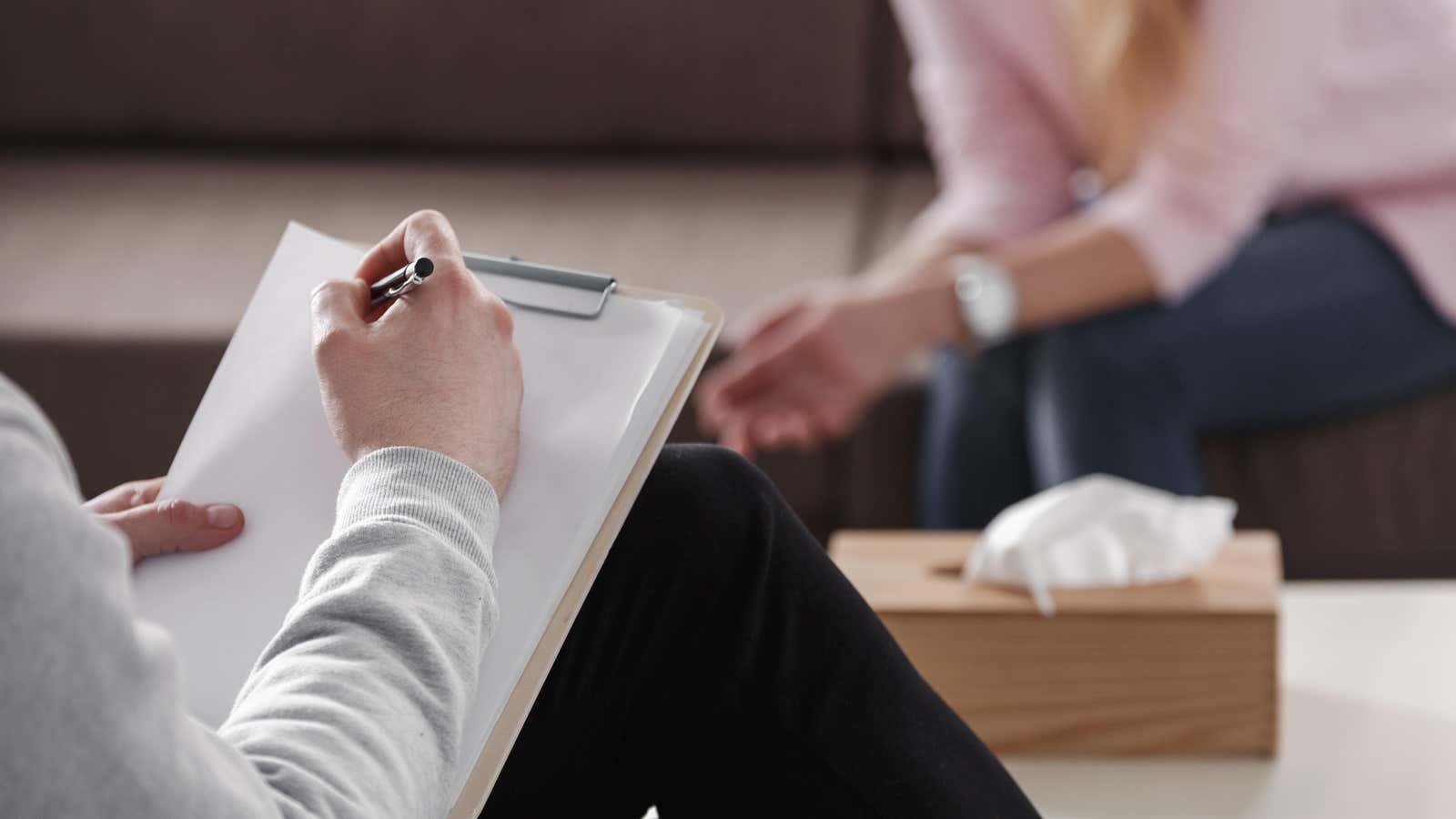What to Expect at Your First Psychotherapist Visit (and How to Prepare for It)

You’ve taken the leap and scheduled your first meeting with a therapist. Maybe this is your first session with someone, or your last session was many years ago, or you are nervous about switching to a new therapist. Whatever your exact circumstances, you have an appointment on your calendar where you physically (or virtually) sit on a stranger’s couch while they – presumably – ask you to share all of your deepest feelings.
During the waiting period before the start of the session, pre-therapeutic nerves accumulate: are they going to analyze how you sit in the chair? Do you need to brush up on your own mental health history? Do you have to talk about your childhood? This is a concern for anyone, even if anxiety is not the reason you booked your session in the first place.
Each therapist is individual, as is each therapy session. However, there are certain elements that you can anticipate in almost any meeting. Once you’ve scheduled your first appointment with a therapist, here’s how you can mentally prepare for your session.
Take care of all paperwork
Whether you’re making notes on the clipboard in the waiting room or opening a separate tab to fill out PDFs, there are a number of required documents included with your first therapist appointment. Be prepared to complete the following:
- HIPPA forms
- Information about insurance
- Medical history, including your current medications
- Questionnaire about your symptoms
- Record release form
- Physician-Patient Services Agreement
In addition to paperwork, you will need to discuss some other logistical issues with your therapist. Instead of delving into their childhood trauma, the first meeting will likely include a discussion of their professional approach to therapy, the intricacies of patient confidentiality, and other details of their practice. On that note…
Manage your expectations
There isn’t enough time in a new therapist’s first appointment to delve as deeply as you hoped (or feared). However, they will ask more general questions about your mental health to get to know you as a client. Manage your expectations for what you will get from the first meeting. This is probably a much more introductory and much smaller study than you might think.
Mentally walk through the session
Uncertainty is probably the main reason for your anxiety right now. As you mentally move through your upcoming meeting, you can ease some of those nerves. Take comfort in the fact that much of the first session will be devoted to more immediate, superficial subjects.
The session will most likely begin with a small talk. This is not a “trap”. This is because your therapist is a different person, and your relationship will work best if the two of you have a rapport and a basic level of connection.
Your therapist can then ask you directly what brings you to his office that day. Prepare to answer the question why you are seeking therapy. There is no wrong answer here; try to be as honest as possible about what needs or problems you would like to be addressed through joint treatment.
Questions you can expect from a therapist
Here are a few common questions that GoodTherapy therapists say you can expect at your first meeting.
- Have you attended therapy in the past?
- What are your symptoms?
- What brought you to therapy?
- Did your family have mental health problems?
- How is your living situation / home life?
- Have you had a history of suicidal thoughts?
- Do you have a history of self-harm?
- What do you hope to gain from therapy?
If it helps you relax, you can prepare the answers to these questions before the meeting.
Prepare your own questions for your therapist
Therapy is not a one-way question. If it helps you, consider asking your new therapist the following questions:
- How does patient privacy work? When do you need to break it?
- How long have you been a therapist?
- Do you specialize in certain mental health issues?
- What things should I plan to do between our sessions?
- What advice can you give me to get the most out of our time together?
If you want to ask these questions before your appointment, ask if this therapist offers a free phone consultation before agreeing to a paid session. This is a common practice that can save you time, money and heartache.
Test Yourself Before Schedule Your Second Session
A good therapist uses the first session to connect and reassure you. If something is wrong, listen to that feeling. Therapy is a very individual practice and not every couple will work. If you can’t imagine the two working together in the long run, you may not book a second session.
First, one of the hardest parts of therapy is coming to this meeting. Don’t worry if the first meeting doesn’t go well. Check out our guide to choosing the right therapist and keep shopping until you find the right one.